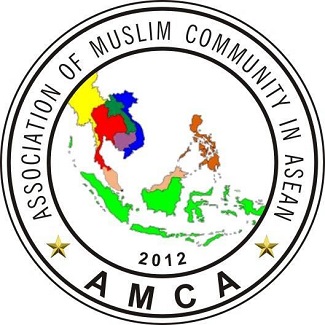Tawajjuh and Islamic Therapy: Improving Subjective Well-being
DOI:
https://doi.org/10.18196/jiee.v2i1.26Keywords:
Tawajjuh, Islamic Therapy, Subjective Well-BeingAbstract
The present research is descriptive qualitative research that examines tawajjuh as one part of Sufism developed by Tarikat Naqsyabandiah from Aceh. The data in this research was obtained from interviews with people who have practised tawajjuh and students who live in Islamic educational institutions (dayah) that implement tawajjuh values and related studies in various journals, books and scientific studies. Tawajjuh is a series of spiritual activities to lead the counselee (jama'ah) to always be mindful of God through a direct relationship with a mentor face-to-face in one assembly by reciting several dhikr as a form of worship. This research aims to develop Tawajjuh as an Islamic therapeutic approach, promoting integrated and fostered subjective well-being. Based on the study, tawajjuh can increase subjective well-being in an exemplary manner. The study found a series of stages of tawajjuh as an Islamic therapy to foster positive subjective well-being.
Downloads
References
Abubakar. (1993). Pengantar Ilmu Tarekat. Solo: Ramadhan.
Agus, B. (2006). Agama Dalam Kehidupan Manusia. Jakarta: PT Raja Grafindo Persada.
Amin, S. M. (2010). Bimbingan dan Konseling Islam. Jakarta: Sinar Grafika Offset.
Andriani, F. (2021). Pemberdayaan Masyarakat Berbasis Psikologi Islam Melalui Implementasi Terapi Zikir dalam Pengembangan Kesehatan Mental Masyarakat Eks Pasien Covid-19. Community Development: Jurnal Pengembangan Masyarakat Islam, 5(1), 1–20. https://doi.org/10.21043/cdjpmi.v5i1.9463
Bruinessen, M. V. (1994). Tarekat Naqsyabandiyah di Indonesia. Bandung: IKAPI.
Brunessen, M. V. (1998). Tarekat Naqsyabandiyah Di Indonesia. Bandung: Anggota IKAPI.
Damanhuri. (2010). Akhlak Tasawuf. Banda Aceh: Yayasan Pena.
Diener, E. (2000). Subjective well-being: The science of happiness and a proposal for a national index. American psychologist, 55(1), 34.
Fahmi, N. (2009). Spiritual Excellence Kekuatan Ikhlas Menciptakan Keajaiban Hidup. Jakarta: Gema Insani.
Johan. (2015). Kepentingan Syekh Mursyid Dalam Tharekat Naqsyabandiyah. Khanqah: Ruhani Bazi,.
Lubis, L. (2021). Konseling dan Terapi Islami. Medan: Perdana Publishing.
Mappiare, A. (2006). Kamus Istilah Konseling & Terapi. Jakarta: Raja Grafindo Persada.
Mardalis. (2006). Metode Penelitian Suatu Pendekatan Proposal. Jakarta: PT Bumi Aksara.
Maturidi, & Maemunah. (2020). Zikir Sebagai Terapi Penyakit Hati Dalam Perspektif Bimbingan Dan Konseling Islam. At-Taujih: Bimbingan dan Konseling Islam, 3(1), 74–85. https://doi.org/10.22373/taujih.v3i1.6954
Misbakhuddin, A. D., & Arofah, S. (2018). Zikir sebagai Terapi Penderita Skizofrenia (Living Alquran Di Unit Pelaksana Teknis Rehabilitasi Sosial Eks-Psikotik Dinas Sosial Provinsi Jawa Timur). Spiritualita, 2(1), 106–125. https://doi.org/10.30762/spr.v2i1.886
Mulyati, S. (2006). Tarekat-tarekat Muktabarah di Indonesia. Jakarta: Kencana.
Notoatmodjo, S. (2018). Metode Penelitian Kesehatan. Jakarta: Rineka Cipta.
Nurjanah, N. (2018). Implikasi Majelis Taklim dan Tawajjuh terhadap Partisipasi Masyarakat. Substantia: Jurnal Ilmu-Ilmu Ushuluddin, 20(2), 137–149. https://doi.org/10.22373/substantia.v20i2.5152
Rahayu, I. T. (2009). Psikoterapi Perspektif Islam & Psikologi Kontemporer. Malang: UIN Malang-Press.
Said, F. (1996). Hakikat Thariqat Naqsyabandiyah. Jakarta: PT. Alhusna Zikra.
Satriani, A. (2018). Tradisi Suluk dan Tawajjuh di Dayah Nurul Yaqin Desa Limau Saring Kecamatan Labuhan Haji Timur Kabupaten Aceh Selatan. Banda Aceh: Sosiologi Agama Fakultas Ushuluddin dan Filsafat UIN Ar-Raniry.
Shadiqin, S. I. (2021). BERTAHAN DALAM PERUBAHAN: Modifikasi dan Afiliasi Politik Tarekat Naqsyabandiyah Khalidiyah di Aceh. Jurnal Sosiologi Agama, 15(1), 53–70. https://doi.org/10.14421/jsa.2021.151-04
Snyder, C. R., & Shane J. Lopez. (2002). Handbook of Positive Psychology. United Kingdom: Oxford University Press.
Toriquddin. (2008). Sekularitas Tasawuf Membumikan Tasawuf Dalam Dunia Modern. Malang: UIN Malang Press.
Downloads
Published
How to Cite
Issue
Section
License
Copyright (c) 2024 Journal of Islamic Education and Ethics

This work is licensed under a Creative Commons Attribution-ShareAlike 4.0 International License.





